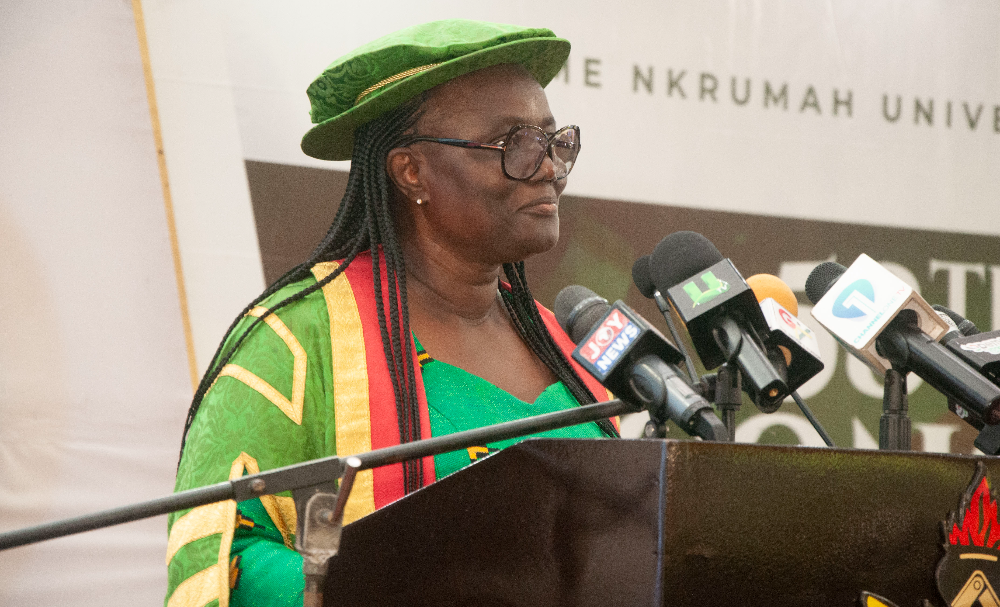The financial burden of tertiary education remains a significant barrier for many bright but underprivileged students across the country. In response to this persistent challenge, the Government of Ghana has rolled out the “No Fee Stress” policy under the Students Loan Trust Fund (SLTF) to facilitate tuition-free access to higher education for newly admitted students.
As reiterated by the Vice President Prof. Jane Naana Opoku-Agyemang, the Ministry of Education, 129,054 first-year students have already accessed the SLTF portal, with 107,429 successfully completing their applications.
Validation has been completed for 22,592 students across 114 institutions, and disbursement processes are currently underway, marking a decisive step in the government’s quest to democratize access to tertiary education.
However, this national initiative is finding strong and strategic allies at the institutional level, most notably at the Kwame Nkrumah University of Science and Technology (KNUST), Kumasi.
Through a diverse portfolio of scholarship schemes and financial aid programmes, KNUST has consistently demonstrated a commitment to ensuring that no deserving student is denied an education due to financial constraints. These efforts are firmly aligned with Sustainable Development Goal (SDG) 4, which calls for inclusive and equitable quality education and the promotion of lifelong learning opportunities for all.
Among the initiatives presented were a special admissions policy designed to support students from less-endowed and rural communities; deliberate efforts to promote science, technology, engineering, and mathematics (STEM) education among girls; and support mechanisms for students with disabilities and refugee backgrounds, particularly through the Mastercard Foundation Scholars Programme.
There are four key policy frameworks that guide KNUST’s inclusive education agenda. These include the admissions policy, which expands access to underserved student populations; the equality and diversity policy, which promotes inclusion and freedom of expression; the gender policy, which ensures equitable opportunities for both male and female students; and the disability policy, which provides structured support for students and staff with disabilities.
In addition to these policy measures, KNUST has instituted mentorship programs, financial aid, and academic support services to help students stay in school and complete their education.
Among the flagship initiatives is the Mastercard Foundation Scholars Program, which not only provides full scholarships to economically disadvantaged students but also equips them with leadership training and career development opportunities.
Similarly, the KNUST Bursary offers direct financial aid to Ghanaian students in need, while partnerships with organizations like the German Academic Exchange Service (DAAD) bring additional funding for high-achieving students in science, engineering, and development fields.
The Students’ Representative Council-KBN Fund, the GETFund, and the KNUST Alumni Association also contribute to a robust ecosystem of support, enabling students from all backgrounds to pursue higher education without the stress of financial exclusion.
With national programmes like No Fee Stress dovetailing with KNUST’s institutional efforts, a powerful framework for educational equity is taking shape, one that reflects Ghana’s broader commitment to inclusive development and human capital growth.
These collective actions not only open doors for individual learners but also advance the global agenda for Quality Education (SDG 4), ensuring that higher education is not a privilege, but a right accessible to all.
As the new academic year progresses, these joint interventions are expected to lift hundreds more into the corridors of opportunity, reinforcing education as a cornerstone of national transformation.
| Story: Emmanuel Kwasi Debrah (URO) | Photos: Jonathan Gyepi-Attee (URO) | |

















